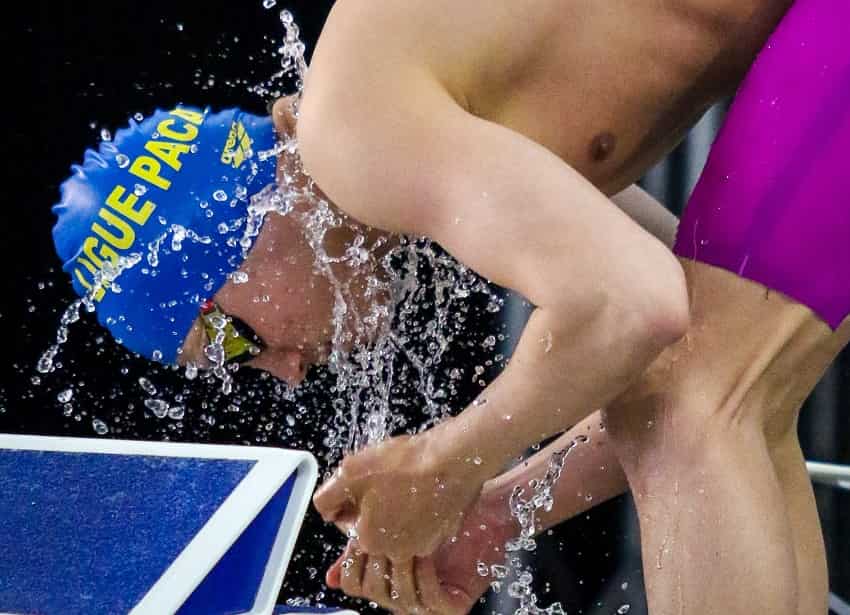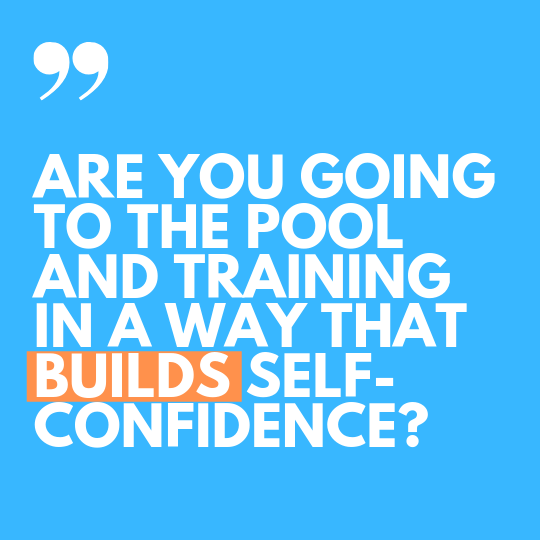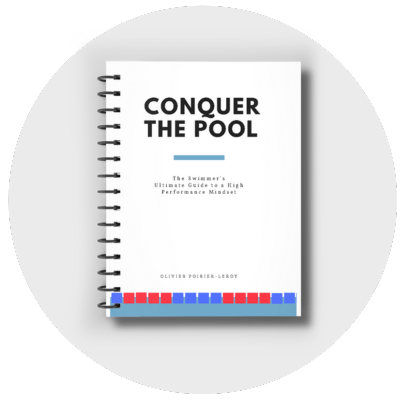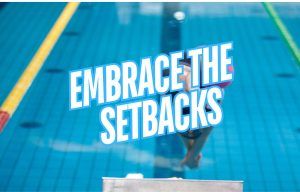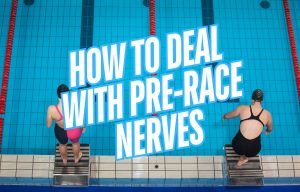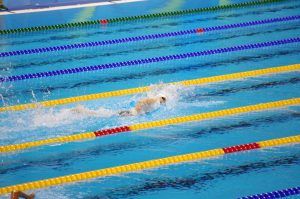It’s so simple, but it’s crazy how many swimmers ignore this fundamental aspect of high-performance swimming: Train under conditions that inspire confidence.
It’s the final moments before your heat, headphones thumping your head, and it’s just you, your thoughts, and your confidence.
As the race slowly creeps up, some overthinking tends to happen:
Did I train enough? Did I prepare to the best of my ability? I feel more anxious than usual.
Your self-confidence yo-yo’s along with your thoughts, both good and bad.
Thinking back to the hard work you did, you experience a warm sense of self-confidence. I got this.
When you think about how you haven’t really worked on your starts, a sense of dread casts a shadow over your self-confidence. I hope I don’t screw up getting off the blocks.
As you know from experience, how confident you are predicts how fast you swim on race day.
When we are optimally and properly confident, we don’t fear the competition, the pre-race nerves, or even failure.
A fast swim is coming. The work has been done.
It’s a good feeling.
Check that—it’s a great feeling.
But how often is this the case?
Because for the times where we have shown up on race day feeling like the Hulk, there are also countless moments where our confidence was more of a whimper than a superhero.
To be more consistent with our self-confidence would be extremely neat-o. Having maxed out self-confidence on tap is the dream.
But how do swimmers go about cranking up their self-confidence?
Where do you start?
Is it just a case of having better self-talk? Pounding your chest and telling yourself to toughen up? Of talking a big game, and hoping that you will be able to follow through with your bravado?
Proper, light-your-PB’s-on-fire self-confidence starts with training for it.
Training for epic self-confidence
Confidence in competition is a tricky subject, and one that swimmers often don’t properly understand.
For starters, there are different types of self-confidence, and they are far from equal in what kind of performance you can expect.
There is optimal confidence, the 100% legit self-confidence based on experience, rooted in realistic expectations, and back-stopped with high-grade preparation.
As you can guess, this kind of confidence helps us swim particularly good. This is the bulletproof mentality we want on race day.
The other kinds of self-confidence, false, inflated, and under-confidence—well, not so much.
So, what’s missing from your training to give you the optimal kind of self-confidence that promotes epic performances?
Here are two of the big holes.
1. The training you did doesn’t give you the sense that you can be successful.
The practices and sets they have been doing doesn’t reflect what they want to accomplish in competition.
For example, a swimmer may hope to go :55 for their 100m freestyle, but the fastest pace they’ve reached in training has been a :29. It’s hard to feel confident when your training doesn’t provide the evidence.
Although we can lie to ourselves to a certain degree, there comes a point where our brain knows we are being delusional. Real, genuine confidence doesn’t come from lying to ourselves about the work we have done. This results in false confidence.
No matter how much you try to fake-it-till-you-make-it, you can’t out-think crappy training.
Confidence comes from preparation, so take a look at your process and see what it needs to give you confidence.
2. The pressure you face on race day overwhelms you (because you aren’t used to it).
Confidence comes from being in control. When things are comfortable, safe, and predictable, it’s easy to be confident.
This is a common reason that swimmers have such a hard time transitioning from a practice environment, where there is limited pressure, high levels of predictability, and no real or imagined consequences for an off swim.
After all, how nervous do you ever really get before practice?
Things are safe and familiar. You have a solid idea of what to expect, there aren’t hundreds of people watching you swim, and you don’t have that “this race means everything!” vibe that happens in competition.
Contrast that to competition, where the pressure and pre-race nerves are dialed up, the environment is foreign, and the performances of other swimmers are unpredictable.
On top of all that, in competition we build up the consequences of a bad performance:
- If I swim poorly I won’t go a best time and then my parents will be disappointed
- All that training will have been a waste if I don’t win
The mindset we have in competition, and the resulting pressure and anxiety becomes overwhelming when we avoid it all costs in training.
Pressure and a degree of anxiety should be part of your regular training, so that when you get up on the blocks, and your stomach is churning from the butterflies it won’t such a weird and crippling sensation.
The solution is simple: Take away some of the comfort and safety from training to get yourself used to performing under pressure.
Make the decision to train for confidence
Solving your confidence woes starts with being realistic about what is missing from your training.
If you aren’t feeling confident on race day, sit down and figure out what you can do on a regular basis at practice to build yourself into the self-confident swimmer you want to be.
More Stuff Like This:
How to Swim Like a Monster Under Pressure. Fed up with not being able to rise to the occasion when the pressure is on? Here’s the swimmer’s ultimate guide to performing at your best when it matters most.
5 Ways This Mental Training Book Will Rock Your Chlorinated Socks Off. Frustrated with your mindset? Tired of not seeing the results you want in the pool? This book will help you seriously elevate your swimming this season. Here’s how.

